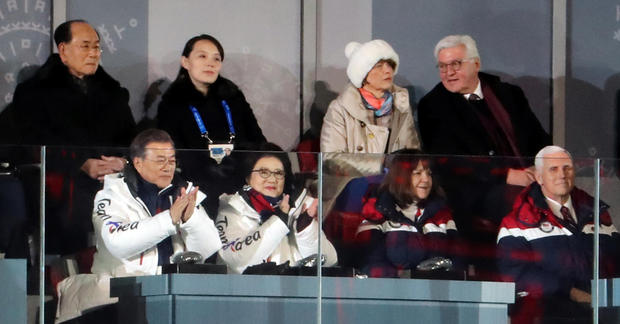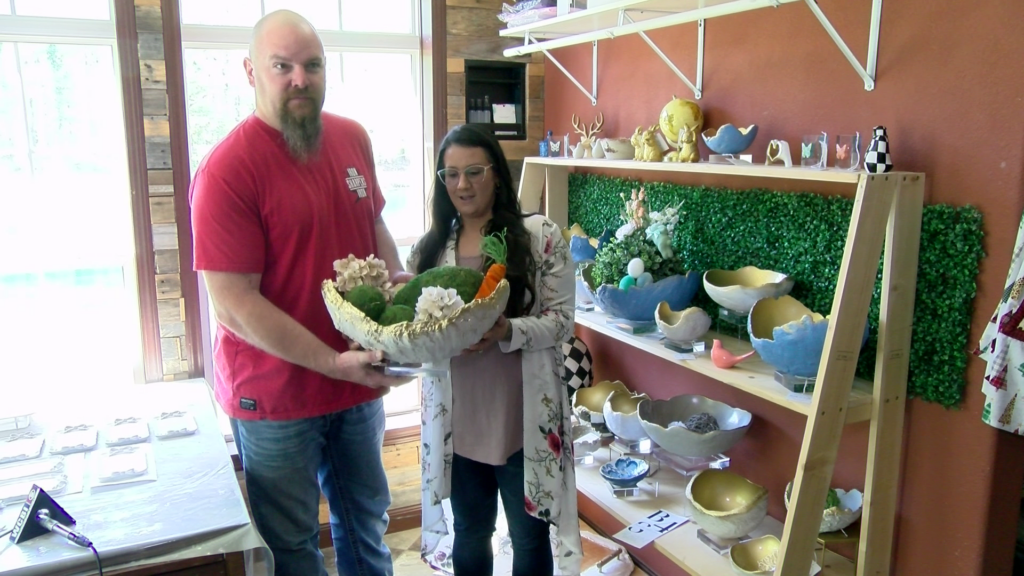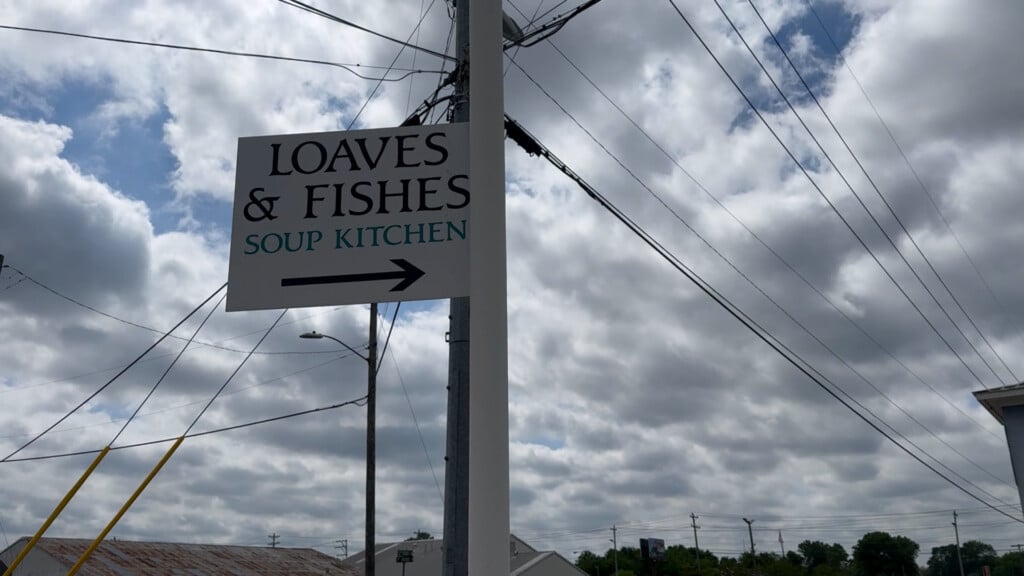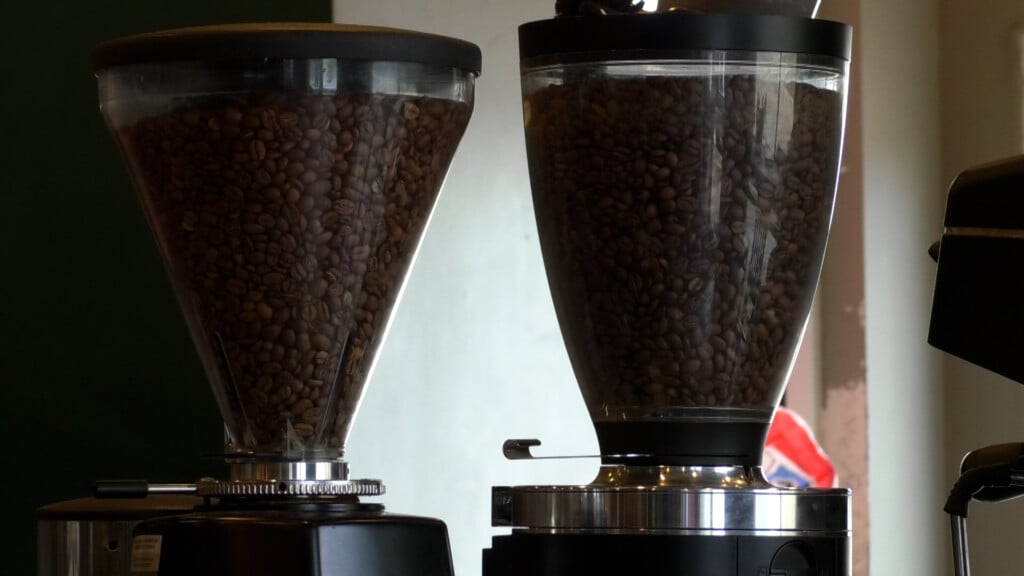Kim Jong Un lauds “climate of reconciliation” at Olympics
North Korean leader Kim Jong Un has praised the welcome the South gave his sister and said it was important to build on the Olympics-driven momentum for dialogue on the divided peninsula. Kim’s younger sister Kim Yo Jong — one of his closest confidantes — was part of the nuclear-armed North’s diplomatic delegation to the Games that made worldwide headlines.
She delivered his invitation for the South’s President Moon Jae-in to come to a summit in Pyongyang — which he did not immediately accept, saying the “right conditions” were needed.
North Korea is subject to multiple sets of UN Security Council sanctions over its banned nuclear and ballistic missile programmes, and conducted dozens of weapons tests last year. As CBS News’ Pamela Falk reports, the North lashed out anew on Monday against what it called “despicable” and “criminal” U.N. sanctions enacted with the intention “of suffocating” North Koreans’ livelihoods and public health.
“This clearly proves that the U.N. Security Council, overpowered by high-handedness and arbitrariness of the U.S., has only turned into the tool of infringement upon people’s right and barbarous state sponsored terrorism,” a statement by the North Korean delegation to the U.N. said.
But the Winter Olympics in Pyeongchang have triggered extraordinary scenes, with Moon and Kim cheering a unified Korean women’s ice hockey team together — along with the North’s ceremonial head of state Kim Yong Nam — and attending a concert by Pyongyang’s artistes.
Even so analysts warn that the positive mood could evaporate quickly after the Games, when the U.S. and South are due to hold major joint military exercises that always infuriate the North.
Kim Jong Un met the delegation on Monday after it returned to Pyongyang, the official KCNA news agency reported.
It indirectly cited Kim as saying it was important to enhance “the warm climate of reconciliation and dialogue” created by the Winter Olympics — which for months the North refused to say whether it would attend.
He gave instructions for “practical measures” to do so, it added, without giving details.
The South’s appreciation of the North’s presence and the welcome it gave its representatives were “impressive,” he said, thanking Seoul for its “sincere efforts”.
Close scrutiny
The KCNA report was the first official reaction from Kim — the third generation of the dynasty to rule the isolated and impoverished North — since his sister’s charm offensive in the South.
Kim Yo Jong’s visit made her the first member of the family to set foot in the country since the end of the Korean War.
Every detail of her trip was scrutinised, from the clothes she wore and her facial expressions to the bag she was carrying and even her handwriting.
But it left South Koreans divided, with some hoping it might usher in a real opportunity for reconciliation while others angrily burned the North Korean flag and criticised Moon for being too soft on Pyongyang.
How deep the rapprochement runs, how far it will go and how long it will last once the Games are over remain very open to question, analysts say.
Pyongyang’s Olympic diplomacy has also highlighted differences between Seoul and its key protector the United States over how to handle the reclusive regime and its nuclear weapons program.
South Korean President Moon Jae-in talks with Kim Yo Jong, the sister of North Korea’s leader Kim Jong Un, after watching North Korea’s Samjiyon Orchestra’s performance in Seoul, South Korea, February 11, 2018.
REUTERS
Different approach to rapprochement
Right up to the Olympics, Washington had insisted that Pyongyang must take concrete steps towards denuclearisation before any talks can begin, while Moon — whose parents escaped from the North in a U.S. evacuation during the war — has long argued for closer involvement to bring it to the negotiating table.
Vice President Mike Pence signalled a nuanced change in that stance on Monday, saying the Trump administration was open to holding talks with North Korea without any preconditions. But the North has yet to signal any interest in opening direct talks with the White House, nor has the Trump administration officially changed its course of keeping “maximum pressure” on Kim Jong Un.

U.S. Vice President Mike Pence and his wife Karen, South Korean President Moon Jae-in and his wife Kim Jung-sook, North Korea’s nominal head of state Kim Yong Nam, North Korean leader Kim Jong Un’s younger sister Kim Yo Jong, and German President Frank-Walter Steinmeier and his wife Elke Buedenbender sit at the Winter Olympics opening ceremony in Pyeongchang, South Korea February 9, 2018. Yonhap via
Stringer . / REUTERS
In an interview with the Washington Post’s Josh Rogin, on his way home from South Korea where he led the U.S. delegation at the Winter Olympics, Pence said that during conversations with South Korea’s President Moon Jae-in, the U.S. and South Korea had agreed on terms for “further engagement” with the North. Such an engagement would be conducted first by the South Koreans and “potentially” with the U.S. shortly thereafter. But in the interim, the U.S. and allies would continue to pressure North Korea on denuclearization. This, Rogin pointed out, differs from the prior position of the U.S., that the U.S. would only engage with the North if it made concessions on denuclearization first.
Just before departing for Washington, Pence insisted there was “no daylight” between the U.S. and South Korea, despite their different approaches to engagement with North Korea.
Moon hosted a luncheon on Saturday with the North Koreans, where he was invited by Kim’s sister to attend a summit in the North. Pence avoided interacting with members of the regime altogether during his visit to Pyeongchang.





Leave a Reply